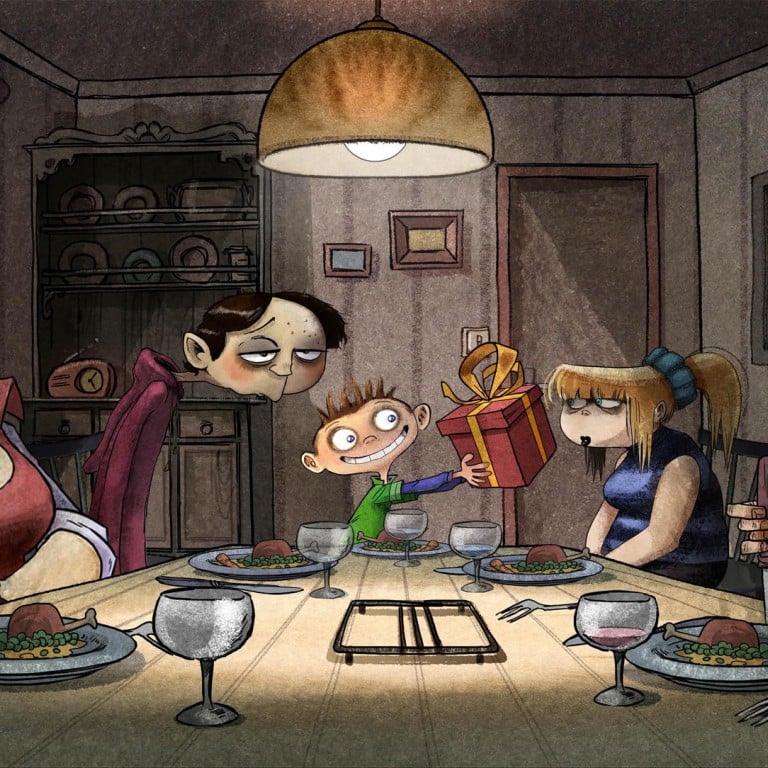
Film review: The Suicide Shop
Edmund Lee

Death is certain - but the speciality business at the centre of takes mortality to the next level.
By supplying an eclectic collection of equipment which guarantees their customers a successful suicide, the shop owners take great pride in their inventory and promise to reimburse every failed attempt. As they smugly proclaim, nobody ever comes back for a refund.
The first animated film by French director Patrice Leconte (, ), is a musical adaptation of writer-cartoonist Jean Teulé's novel, a tongue-in-cheek, macabre tale of lives drained of meaning and happiness.
It postulates a miserable world in which the sky is always grey and the people are either walking into traffic or falling from high places. As suicide in public places has been outlawed, even their bodies are ticketed.
Amid this gloominess is a back-alley family store that has been serving the community and singlehandedly raising its suicide success rate since 1854. Mishima and Lucrèce Tuvache (voiced by Bernard Alane and Isabelle Spade) raise their children, Marilyn and Vincent, to believe in the pointlessness of life and their inherent worthlessness - even if they're expressly forbidden to do themselves in. After all, there is a business to maintain.
But when the irresistibly sunny third child, Alan (Kacey Mottet Klein of ), is born, the Tuvaches' world suddenly threatens to become a merrier place under his sweet-natured plotting. With the help of four unnamed schoolmates, Alan's resolve to put a smile back on the others' faces is as life-affirming as it is predictable. Its dark humour has been compared to that of and the animated works of Tim Burton, and does begin with a dystopian vision. At one point, Alan's incessant smile annoys his father so much that the latter resorts to turning his son into a serial smoker to cut the child's cheer.
There are amusing details: the main characters are all named after famous suicides (including Yukio Mishima and Vincent van Gogh), and their equipment - from poisons packaged as perfumes to ropes with unshakable nooses, ritual swords for hara-kiri and rusty razor blades - are constant causes for chuckles.
And yet, the animated musical struggles to maintain interest throughout its mercifully brisk 79-minute runtime, with its underdeveloped characters and one-joke conceit.
As if struggling for material, Leconte's film gradually deviates from the scrupulously bleak novel and significantly negates the political incorrectness that would otherwise turn this into a cynical fable on existential anguish. Consequently, for a story that's moulded entirely around the decision between life and death, feels nothing more than an inconsequential afterthought.
opens on August 8

